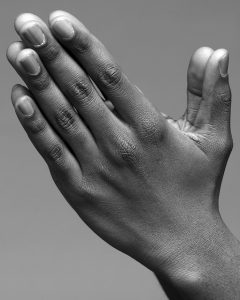Revised Common Lectionary Reflection, Fifth Sunday after the Epiphany, Year B
February 4, 2018
Lessons: Isaiah 40:21-31; Psalm 147:1-11, 20c; 1 Corinthians 9:16-23; Mark 1:29-39
Theme: God’s faithful and generous people know that rest and renewal are rooted in God’s abundant love and healing power.
Key Scriptures: Even youths will faint and be weary, and the young will fall exhausted; but those who wait for the LORD shall renew their strength, they shall mount up with wings like eagles, they shall run and not be weary, they shall walk and not faint. Isaiah 40:30-31
In the morning, while it was still very dark, he got up and went out to a deserted place, and there he prayed. Mark 1:35
Preaching/Teaching Reflection
 The older I get, the more I appreciate this week’s lesson from Isaiah. At the ripe old age of 56 my knees occasionally creak, and cold mornings are usually accompanied by stiff joints. I can’t pull “all-nighters” for study or work, and I’m much more keenly aware that my body has its limits. When I hear the words “even youths will faint and be weary, and the young will fall exhausted,” I am somehow encouraged. However, that encouragement does not last long when I remember that stewardship of self is of great importance, and I am the only one who can manage my own self-care. Even Jesus put self-care into proper perspective during his ministry.
The older I get, the more I appreciate this week’s lesson from Isaiah. At the ripe old age of 56 my knees occasionally creak, and cold mornings are usually accompanied by stiff joints. I can’t pull “all-nighters” for study or work, and I’m much more keenly aware that my body has its limits. When I hear the words “even youths will faint and be weary, and the young will fall exhausted,” I am somehow encouraged. However, that encouragement does not last long when I remember that stewardship of self is of great importance, and I am the only one who can manage my own self-care. Even Jesus put self-care into proper perspective during his ministry.
We cannot take care of others, and we cannot do the good work we want to do if we fail to address the care of our whole selves—body, mind, and spirit. Maybe we would do well to rearrange the order of those components to spirit, body, and mind. If we aren’t spiritually grounded, and if we aren’t in meaningful relationship with the Creator of the Cosmos, then it’s much easier to let the rest of our self-care take a hit, too. Without that Spirit care emphasis, it is too easy to fill the gaping hole at the center of one’s being with less healthy things and addictions. One thing then leads to another, and our self-care oh so uncaring.
I have been re-reading Richard Foster’s excellent book The Celebration of Discipline: The Path to Spiritual Growth, and I highly recommend it for anyone who wants to practice good care of the whole self. The very first chapter of the book addresses meditation, prayer, fasting, and study—all internal disciplines that center and ground a body in the interior life of faith. Not surprisingly, Jesus put a high premium on time apart and prayer, and we know he was well-acquainted with fasting and study. From this foundational taproot springs the deep root system that grounds and sustains the faithful disciple so that life can be abundant and full.
I suspect this Sunday when I climb into the pulpit and look out at the dearly beloved people with whom I serve and minister, there will be those who are not feeling well, whose self-care is all over the map, and who, like me, struggle with balance. I suspect when you look out into the pews, you too, will see a patchwork of situations: those who are living with chronic illness, who have family members dealing with addictions, whose hearts and minds are wearied with the weight of the world, and who are seeking a word and a holy meal that will sustain and uplift them  throughout the week ahead. If you’re like me, your heart will ache with the need and pain we all bear. Likely you will also see those for whom joy is unbridled and hope is rising as if on the wings of eagles, whose lives are grounded in prayer and in whose face the Spirit of God shines like the sun. We are a mixed bag indeed! The thing that binds us together is that we all stand in need of healing and renewal and rest in God’s goodness, mercy, and love.
throughout the week ahead. If you’re like me, your heart will ache with the need and pain we all bear. Likely you will also see those for whom joy is unbridled and hope is rising as if on the wings of eagles, whose lives are grounded in prayer and in whose face the Spirit of God shines like the sun. We are a mixed bag indeed! The thing that binds us together is that we all stand in need of healing and renewal and rest in God’s goodness, mercy, and love.
Maybe that word for today is that even Jesus needed time apart to pray and be with God, that even those who seem so young and fit do, indeed, tire and need the sustaining and enlivening presence of the Holy Spirit, and that in Christ’s supper and through our mutual edification we will find both strength and a reminder that we must take care of ourselves and one another as the Body of Christ. My prayer for you who teach and preach is that you will hear and find courage and hope in your own words—enough so that you will take good care, my friends. Why? Because you matter deeply to God. Amen.
In Worship
This week consider adding the hymn “On Eagles’ Wings” to your worship. You might want to incorporate a time of healing prayer and anointing at some point in the worship service or offer a short healing service after your regular worship for those who desire it. Here’s a link to a Public Service of Healing from the Episcopal Church USA. If your context permits, begin worship with a time of practicing some healing and cleansing breaths as a way to prepare the heart and mind to welcome God and the gospel.
With Youth
Take a good look at this week’s epistle lesson from 1 Corinthians 9. What is Paul trying to say beginning in verse 19 about being free yet a slave to all? What does that tell us about putting others before our own needs? How are we to understand this concept in the 21st century, and how can we apply it in our daily lives? Verse 23 gives us an important clue.
With Children
Even Jesus recharged his “batteries.” Invite the children to think about how we have to recharge our electronic devices and toys. They will not run forever without being connected to a power source. Then invite them to think about their bodies. Our bodies need both rest and connection to God. Rest comes by getting enough sleep, adequate nutrition, and taking good care of our bodies. Our power comes from God. How do we connect to God? Just as Jesus did—in prayer! Remind the children that they can connect to God any time of night or day by talking to God. Even just sitting still and taking a few minutes to appreciate the wonders of creation can be a prayer. If you have time you might teach the children a simple approach to prayer such as the “five finger prayer.” Finish your time with them by praying for their strength and that they will grow strong in wisdom and stature.
Weekly Stewardship Bulletin Insert
Self-care is an important aspect of stewardship. Just as flight attendants remind us to put our own oxygen masks on first before we try to help others, we must devote attention to the care of our own self—spirit, body, and mind—before we can truly be effective at helping others. How can you practice better self-care this week as an act of stewardship and devotion to God?
Stewardship at Home
Check out this free PDF of Richard Foster’s The Celebration of Discipline and access a Cokesbury study guide here. Pick one discipline that you (and your family if applicable) can practice this week. Consider a Lenten discipline of experimenting with these 12 practices and exploring how you might add them as an integral part of your life. Some will come easier than others, and not all may be a good fit at this point in your life, so be gentle with yourself. Look at these disciplines as a source of liberation from a world that would have you believe that you are not enough and that you always need more to be fulfilled. Talk with others about your experience and consider forming a small group of other friends/families who are interested in sharing the journey with you. You can access a study guide to the book here.
Photos: Hernan Pinera, Ansel Edwards, and John Genius, Creative Commons. Thanks!
Note: Reprint rights granted to congregations and other church organizations for local, nonprofit use. Just include this note: “Copyright (c) 2018, Rev. Sharron Blezard. Used by Permission.” Other uses, please inquire: thewritelife@hotmail.com.




Leave a Reply